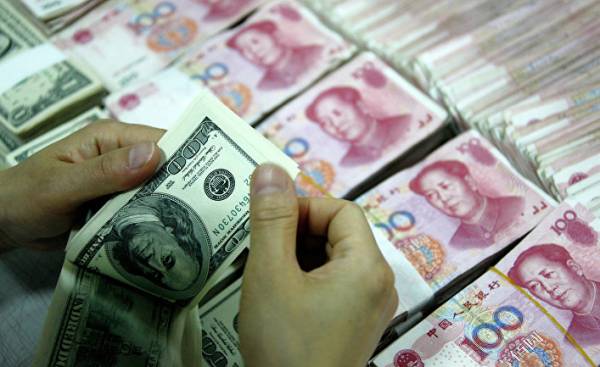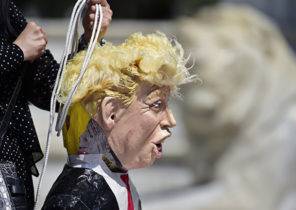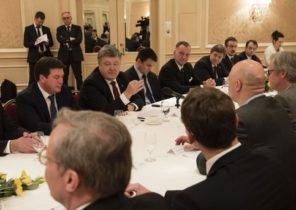
Barely two months after joining trump as President, as the world began to write the obituaries of the system of Pax Americana.
Anti-globalists of the presidential entourage with glee many years of smashing the foundations of the neoliberal order that emerged after the Second world war: free trade, an important military alliances, multilateral institutions, open borders. Coming out of the TRANS-Pacific partnership (TPP), America trump left a leadership vacuum in the system of world trade, particularly in Asia.
Constantly heard the same question: is it time for China to replace America as the global champion and curator of free trade?
No. You don’t. No time soon or in the longer term, it will not happen.
Growth of Chinese overseas investment and the increase in the number of Chinese companies seeking to enter foreign markets through such Grand initiatives as a “New silk road”, is definitely promoting the form of globalization that is emerging under the leadership of China. But these processes should not be confused with the development of transparent, fair, open and rules-based trading system. Beijing has no desire or possibilities.
Trade, and geopolitics is not a game on the principle of “who.” Created by the Washington populist leadership vacuum alone will not fill nor China nor any other country. While Peter Navarro (Peter Navarro) of the National trade Council and other members of the tramp liquidation team sow panic, confusion and uncertainty in the trade sector, other stakeholders, both public and not, must find new ways and means to promote and preserve the rules-based trading system.
In today’s environment strategic thinkers can reduce the risks to trade in Asia and beyond?
First, they need to get acquainted with a cautionary tale about the way of action of Beijing after joining the world trade organization. Second, they need to pay close attention to the increasingly authoritarian domestic policies of China, as it seriously hampers fair and effective Chinese leadership in the global trade arena.
Finally, strategic thinkers must be willing to work in terms of trade fragmentation and multipolarity, which seriously increase the uncertainty and risks.
The shortcomings of the Chinese leadership
Excluding China from the TRANS-Pacific partnership was not due to the desire of the West to prevent the strengthening of its economic influence and power or to hold back its cross-border trade. The problem was and remains that China is defending their own selfish interests at the expense of its trading partners and the rules-based trading system.
After China, in 2001, became a WTO member, put forward the slogan “China first” economic nationalists from Beijing began systematically to subsidize government enterprises, to facilitate dumping the export of local products to foreign markets, to prevent foreign multinational companies to compete with Chinese state-owned corporations and to counteract the attempts of the West to create equal conditions, especially in the field of intellectual property protection.
If not for the abundance of news about the victory of trump and not the actions of the White house for the destruction of the global order, systematic China’s attempts to cheat and fool the trading system would attract much more attention.
China is unlikely to improve its trade policies. Beijing is moving not forward, but backward.
At a time when economic growth in the country — the lowest in 20 years, the ruling party is trying to solve many other problems that lead to destabilization: the large outflow of capital, excess capacity in key industries, the rapid growth of the “debt bubble” and a huge number of bad loans in the portfolios of state banks.
The fear of instability is causing such paranoia in the government which did not know China since Mao. Pressure XI Jinping on the press and foreign non-profit organizations, coupled with the aggressive censorship of the Internet and social networks represent a sobering and regressive change of course in Beijing. At the same time, the ruling party is fanning nationalist passions, and the country is pursuing a more aggressive military policy in the South China sea, causing concern among neighbors and trading partners.
All this does not help the attempts of China to become the leader of free trade.
Speech by XI Jinping at the world economic forum in Davos, where he said that China is ready to strongly defend free trade, was very timely from the point of view of strategy, and it met with approval. But the statement si is unrealistic.
Making the way for a new shopping maze
Asian and other countries do very wisely, recognizing the growing commercial role of China in the next phase of globalization. But this does not mean that these countries will follow the example of the Chinese business model.
States such as Australia and Singapore, have been very pragmatic, joining the project of the regional Comprehensive economic partnership VREP (Regional Comprehensive Economic Partnership), which is a smaller-scale Chinese alternative to the TTP and does not include in its membership the United States. But these countries will continue to cooperate with its longstanding partners in AESAN and other associations promoting progressive, fair and transparent rules
trade.
That’s why the other members of the TRANS-Pacific partnership the majority continue to seek ways to revive the TPP, or, at least, to preserve the underlying mechanism of cooperation, concluding bilateral trade agreements.
If America does not change course in the near future, we just will not have a clear world leader in the field of free trade.
Alex Capri is a nonresident senior fellow at the National University of Singapore, where he teaches in the business school. In the past he was a partner in one of the leading consulting firms in the world KPMG. Prior to this Capri spent 10 years working in the US government as a specialist on international trade. He graduated from the London school of Economics.







